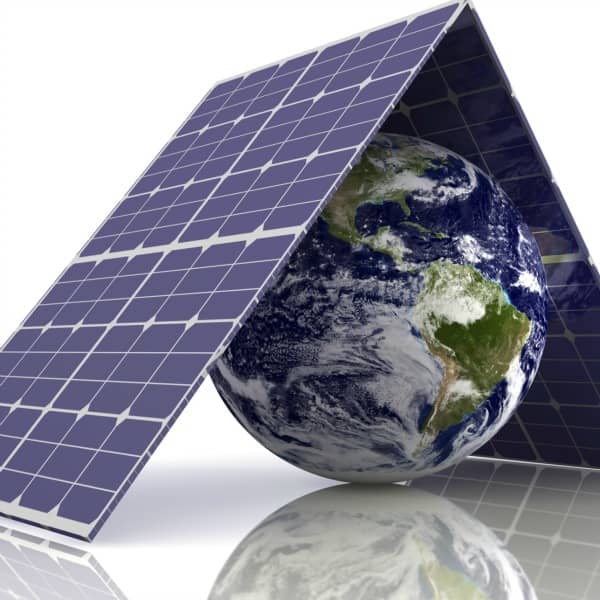 For the first time, global PV installations may top 35 GW this year, according to a new report from IHS that challenges more-pessimistic forecasts. However, the industry will continue to see increased fragmentation.
For the first time, global PV installations may top 35 GW this year, according to a new report from IHS that challenges more-pessimistic forecasts. However, the industry will continue to see increased fragmentation.
Global photovoltaic installations are forecast to exceed 35 GW in 2013, equivalent to growth of 12%, according to recently released analysis from IHS. IHS has also reaffirmed its earlier prediction that global PV installations surpassed 30 GW in 2012, with final analysis showing that installations, in fact, grew 14% to reach 31.4 GW last year.
Contrary to many other more pessimistic predictions for the industry, IHS foresees the PV industry to continue along its double-digit growth path in 2013 and exceed 35 GW for the first time.
‘We often see quite pessimistic forecasts at the start of each year for PV installations, due to a seasonal slowdown and talks of major incentive cuts as Europe reassesses its PV policy typically after yet another year of record growth,’ explains Ash Sharma, senior director of solar research at IHS.
‘However, our analysis of more than 60 countries around the world shows that demand outside of Europe will more than compensate for the fall in the continent, and installations will go on at any rate to hit 35 GW this year,’ he continues.
Installations in Asia surged in the fourth quarter of 2012 and exceeded 4 GW during the period – an amount close to half the global total. According to IHS, Asia's importance to the global PV market will continue, and this year, the continent will become the largest region for PV installations for the first time in 10 years.
PV installations in Asia are forecast to grow to 15 GW this year, exceeding those in Europe, which are predicted to drop to 13 GW.
For the Chinese market, however, IHS is less optimistic than others on likely installations for that country this year. ‘We predict China will install at least 6 GW of new PV capacity this year,’ says Sharma. ‘This is somewhat lower than the 10 GW figure that has been widely circulated around the industry as China's target for 2013.
‘The continued issue of grid-connecting megawatt-scale PV projects, as well as delays in developers receiving [feed-in tariff] payments, is likely to hold back China from installing more this year,’ he explains. ‘Even so, a dwindling European market and restrictions on Chinese modules could well drive higher domestic installations.’
Installations versus connections
Although IHS confirmed that global PV installations surged past 31 GW last year, its analysis showed that grid-connected PV capacity was actually lower than 30 GW.
‘When analyzing PV demand, some people talk of installations while others talk of connections,’ Sharma points out. ‘This often causes confusion, and so IHS tracks both to fully understand the market dynamics.
‘Connections were lower in 2012 than installations, owing to lengthy delays in connecting major projects in countries such as China and India,’ he says. ‘For instance, up to 2.5 GW of PV projects were completed but not connected to the grid at the end of 2012 in China.’
IHS' analysis showed that global PV connections in 2012 amounted to just over 27 GW.
Although Europe accounted for 70% of PV installations in 2011, IHS found that this total fell to 57% in 2012 and is predicted to slide further to 37% this year, especially as the region becomes outflanked by Asia.
Almost all of Europe's so-called mature PV markets are predicted to decline in 2013 – a development forecast to take place despite bright spots of growth in countries such as the U.K., Turkey and the Netherlands. As a result, IHS predicts that installations in Europe will fall from 18 GW in 2012 to 13 GW in 2013.
‘While hopes in the past could have been pinned on Germany or Italy – which accounted for nearly two-thirds of European installations in 2012 – growth here looks impossible,’ Sharma states. ‘Changes to Germany's EEG and Italy's Conto Energia are already in place, and a contraction in these two big markets is predicted in 2013.
‘Moreover, looming anti-dumping measures against Chinese manufacturers are taking their toll on Europe, resulting in price increases and additional registration paperwork that will further temper solar demand this year,’ he adds.
Despite Europe's dramatic decline in 2013, IHS maintains that double-digit growth will occur again in global installations. Growth rates of 250%, 50% and 65% are forecast for the Middle East and Africa, the Americas and Asia, respectively, supporting global growth but continuing the industry's geographic fragmentation.

